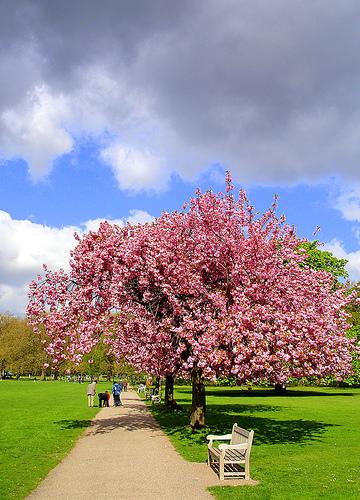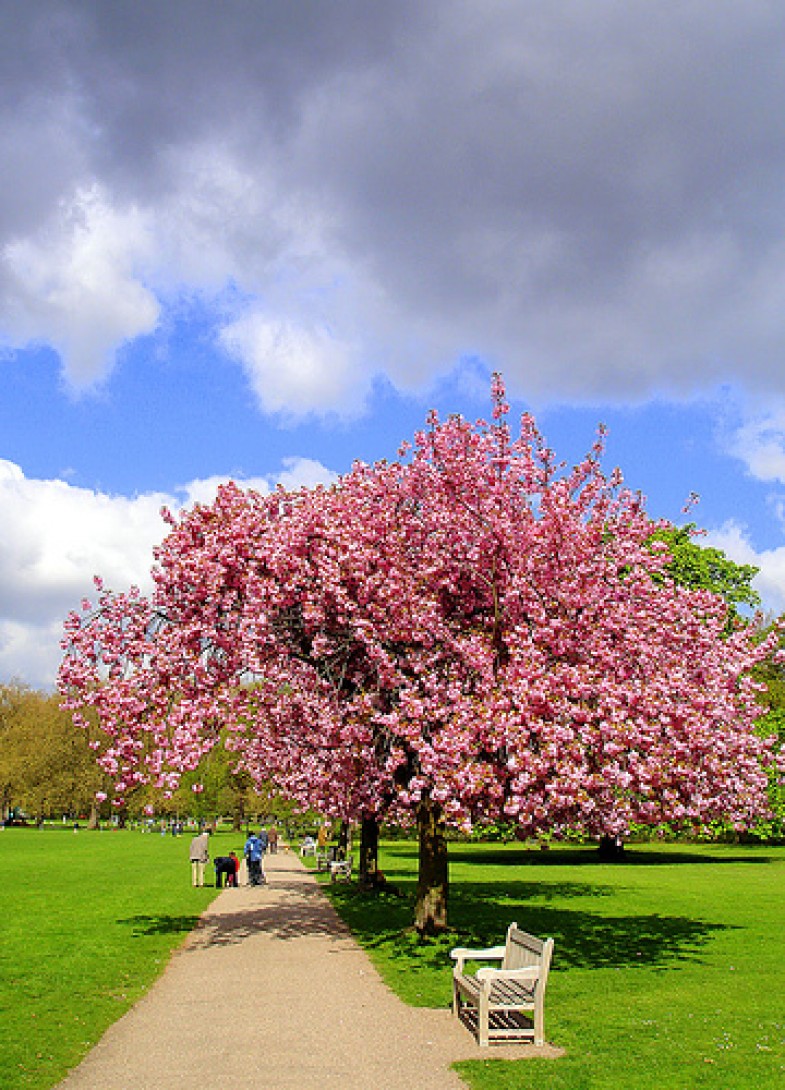Let me offer some good news about the state of your wealth.
Sure, your 401K tanked, the house lost a big chunk of its value, and things are looking shaky at work. Indeed, the Federal Reserve reported that Americans together lost $5.1 trillion in the last three months of 2008 alone.
But what we individually possess accounts for only part of our wealth. Each of us also owns a stake in some extremely valuable assets: clean air, fresh water, libraries, the Internet, parks, cultural traditions and much more.
All these things are part of what is now being called “the commons”, and they are more important than ever.
 p(photo-credits). Photo by Mexicanwave under a creative commons license for no commercial use.
p(photo-credits). Photo by Mexicanwave under a creative commons license for no commercial use.
When the economy appeared to be booming, many of us didn’t think much about the commons; it hardly seemed to matter that social security was imperiled and the local recreation center was in disrepair. IRAs and private health clubs could meet those needs. But today Americans are increasingly grateful for the services and opportunities provided for us outside the for-profit economy.
Public transit use, for instance, increased four percent last year, reaching passenger numbers not seen since the dawn of the Interstate Age a half century ago. And ridership stayed high even when gas prices fell in the latter part of the year.
The New York and Los Angeles public libraries, and many in between, recently set all-time user records, as people flock there to research jobs, use the internet and simply have someplace to go that costs no money. Many folks these days can’t justify shelling out $30 for a bestseller, $25 for a DSL line, or even $3.50 for latte at the local coffeeshop.
Although rarely recognized as an essential element of a prosperous modern society the commons is now being championed by a growing legion of citizens. Even President Barack Obama speaks in language that evokes these themes.
“The success of our economy has always depended not just on the size of our gross domestic product,” he told the nation in his inaugural address, “but on the reach of our prosperity – on our ability to extend opportunity to every willing heart, not out of charity but because it is the surest route to our common good.”
But the news about our common wealth is not all good today. While it has not declined twenty, thirty or forty percent in value over the past year, like many people’s personal savings, it still faces major threats.
The financial downturn creates new pressures to balance state and local government budgets by hacking away at the commons—closing public libraries, cutting back bus service, eliminating social programs. St. Louis is looking at cutting bus service in half. St. Paul, Minnesota., is closing one library and six recreation centers. The state of California is looking at trimming almost every state program and service.
But even in good times, the wealth of the commons has always been vulnerable to exploitation by those who see an opportunity for personal gain at the public expense. This pillaging of everyone’s wealth has become known as “the tragedy of the commons,” after a famous 1968 essay in Science magazine by Garrett Hardin.
Hardin, a biologist, took the example of grazing lands—perhaps the most familiar use of the word commons—to describe how greedy self-interest pushes farmers to let their animals overgraze commonly-held land. They reap substantial profits from this degradation of the land, and suffer only marginal losses since they are one among many owners.
But the situation Hardin describes is actually “the tragedy of the unmanaged commons”. Throughout history cultures, including our own, devised effective systems to make sure that common assets were not depleted. That was the impulse behind environmental laws, financial regulations and social programs enacted between the 1930s and 1970s.
The true tragedy of the commons has been inflicted on us by free market zealots who attacked these sensible measures in order to carry out greedy raids on our common wealth— a massive and unprecedented looting of everything from public lands to public services to our cultural inheritance, which reached a crescendo during the George W. Bush years.
Fortunately, this modern “enclosure” of the commons has sparked a new movement of “commoners” who are standing up to protect the things that belong to all of us. More than just an activist cause, the commons is becoming a model for thinking differently about how we make decisions, manage resources and think about responsibilities. Some people now envision a commons-based society where shared wealth compounds our individual assets in “the pursuit of happiness.”



